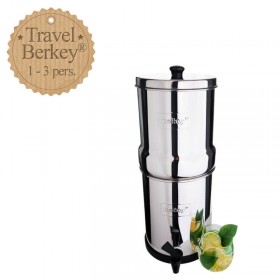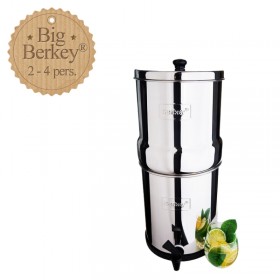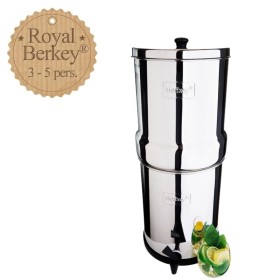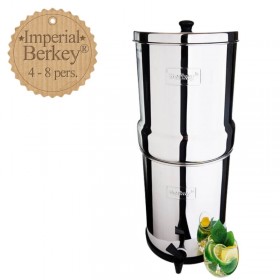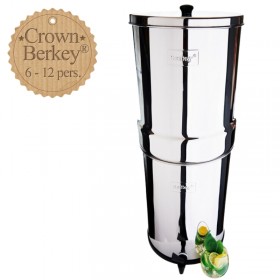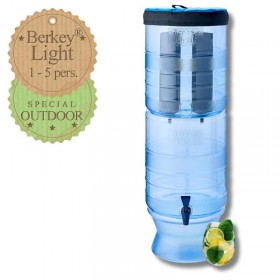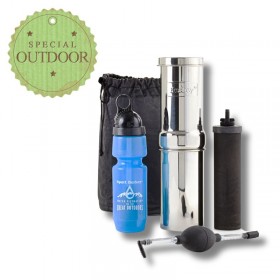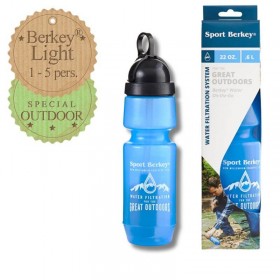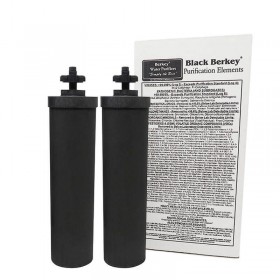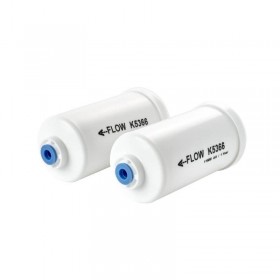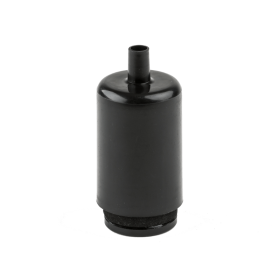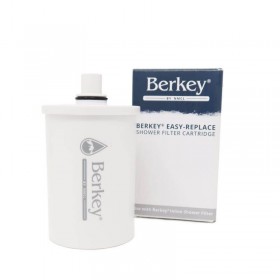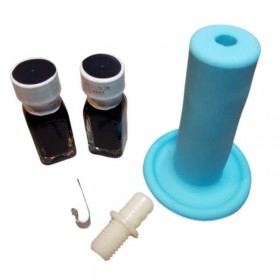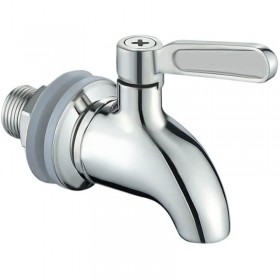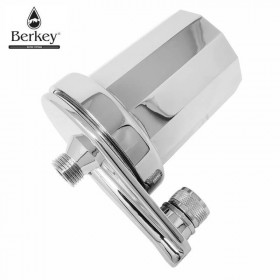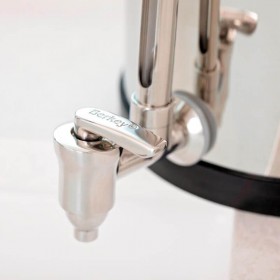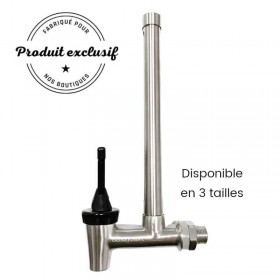Berkey® vs. Kangen (Enagic)
Drinking clean and pure water is a goal everyone aspires to achieve for their drinking water. Our modern world, due to its activities and the resulting pollution, faces a real challenge: finding water free from contamination. The filtration industry has seen significant growth in recent years, with many manufacturers offering devices to filter, purify, and even "transform" water. For some, water is more than just a component of our diet for hydration; it is believed to improve health and even cure certain diseases. How can we distinguish between fantasies, various theories, and pseudo-scientific claims, with each brand making its own advertisements and assertions? By clarifying what is necessary and relevant about water purification. In this article, we will compare Berkey® water purifiers and Kangen water, particularly the devices from Enagic, the most widespread brand today.
Kangen Water and Enagic Products
Enagic has been manufacturing alkaline ionizers in Japan since the early 1990s. The principle is to produce alkaline water with a high pH, claiming that this water is healthier than "normal" water. Furthermore, it is said that this "Kangen water" can cure various diseases, such as hypertension, diabetes, and even cancer.
Of course, everyone is free to believe what they want. However, the medical community remains quite skeptical of these claims. An article in the French magazine "Sciences et Avenir" stated, among other things, "No scientific publication has ever shown any benefit" and "In any case, the pH is very powerfully regulated in the body. Drinking water has no influence." Link to the article (in French).
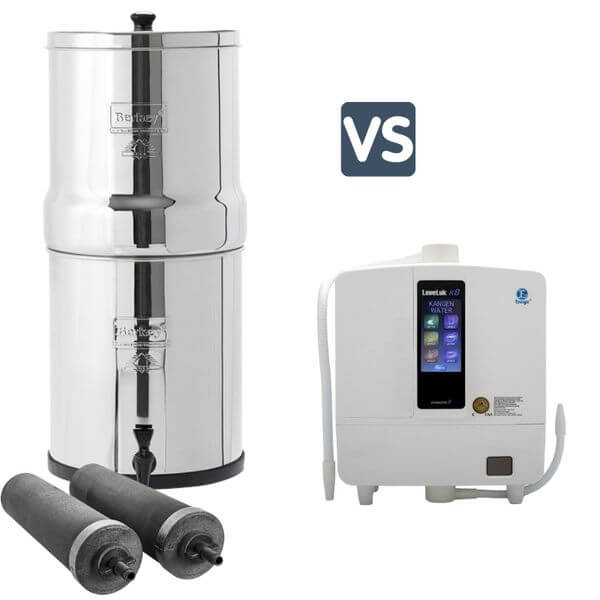
How Enagic Machines Work
Enagic machines are mainly ionizers, which we will explain below. These devices cannot be classified as water filters, and even less purifiers, whose differences are explained on this page. Although they contain a filtration element, their ability to filter water is not comparable to the performance of Berkey® systems or even other filtration systems we discuss. The water does pass through a carbon filter, but it only removes chlorine, VOCs, and bad tastes, and that's about it. The documentation states that the filter "removes many unwanted agents". Be cautious if you use tap water containing pesticide residues, pharmaceutical residues, or heavy metals, as these pollutants will not be removed.
Once approximately filtered, the water passes through an electrolysis chamber, where an electric current is passed through the water between two electrodes, one delivering a positive current and the other negative. The ions in the water (mainly minerals) will move: positively charged ions will be attracted to the negative electrode and negatively charged ions to the positive electrode. Through this process, without going into further detail, the water can have different pH levels, from acidic (non-potable) to very alkaline, with a high pH. For more on pH, see this page.
Filtration Capacity of Enagic Filters
These devices are water ionizers and are not designed for water purification. Although they have a basic filter, they do not allow effective filtration. They only remove or reduce large particles, chlorine, and some VOCs. Do not use this system if your goal is to obtain clean and decontaminated water. Another drawback: the acquisition cost is around or exceeds €3,000 for some models, plus the price of filters (with low capacity), resulting in a very high cost per filtered liter. Finally, they operate on electricity (consuming 230 watts) and require network pressure: no autonomy in case of a power outage or emergency situation.
| ADVANTAGE | DISADVANTAGES |
| "Filtration" speed | Very high acquisition cost |
| Does not remove pathogens, chemical pollutants, heavy metals, or viruses | |
| High cost per filtered liter due to the low capacity of the filters and their price | |
| Significant electricity consumption required to operate and mandatory network pressure | |
| Non-autonomous system |
Berkey® Filters
Like Enagic, Berkey® has been manufacturing water purification systems since the 1990s, developing strong expertise in this field. With this experience, Berkey® has become the leader in gravity filtration, with a mission to provide filtered water free of pollutants. The range of water purifiers includes eight models, for home, outdoor, or travel use, from 0.95 liters (Go Berkey®) to 22.7 liters (Crown Berkey®), systems capable of filtering a large amount of water. More than a million users worldwide have opted for a Berkey® system because it is efficient, its filters have a large capacity (22,700 liters per pair), and it is extremely versatile. Most importantly, it effectively removes many pollutants, including viruses.
How Berkey® Filters Work
Berkey® systems are classified as water purifiers. More specifically, they are gravity water purifiers, operating without the need for electricity or water pressure from a distribution network. Simply fill the upper chamber with water, which, by gravity, passes through the filter elements to be purified. This water is collected in the lower chamber and can be dispensed using the equipped tap. It's as simple as that. And since the Black Berkey® filters that equip Berkey® filtration systems are true purifiers, they remove many pollutants using three specific filtration methods: microfiltration, absorption, and adsorption.
Microfiltration traps undesirable elements in a microporous material, composed of millions of micro-channels forming what we call a "tortuous path." The diameter of these micro-channels is so fine that 99.9999% of bacteria, cysts, and parasites are trapped. To prevent proliferation, the filter contains silver, which acts as an antimicrobial agent, sterilizing the filter and providing a bacteriostatic effect.
Absorption occurs through an ion-exchange membrane that changes the chemical nature of pollutants, rendering them inert. This is the case for petroleum products, pharmaceutical residues, pesticides, and heavy metals.
Finally, adsorption is an electrostatic phenomenon that "sticks" certain elements to the surface of the filter's micro-channels, permanently trapping them. To illustrate this, one can think of the static attraction that causes small polystyrene balls to stick to your hand. Thanks to this property, Berkey® filters can filter and retain up to 99.9999% of viruses that may be present in drinking water.
All these properties are achieved by the Black Berkey® filter through its specific formulation, consisting of a sophisticated (and secret!) blend of six different types of filter media, molded into an outer microporous shell.

